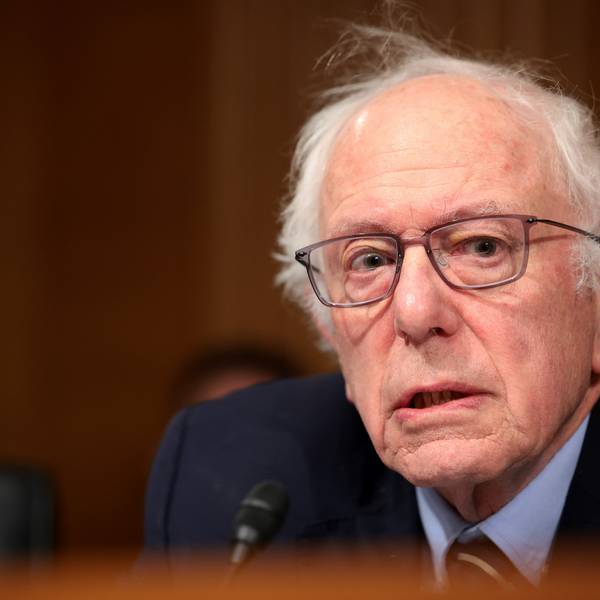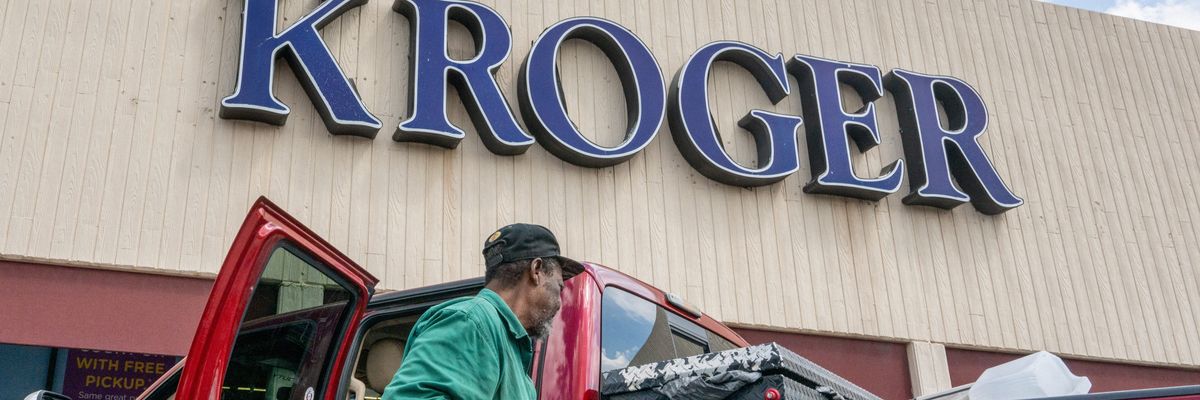Grocery giant Kroger's practice of price gouging in order to pass on its "inflation to consumers," as one executive recently said, has paid off for the $37 billion company, according to its quarterly earnings posted on Thursday.
The company, which is facing a legal challenge from the Federal Trade Commission (FTC) over its proposed acquisition of rival store Albertsons, reported that it earned $466 million in the second quarter of 2024, with year-to-date earnings of $1.4 billion—nearly double the amount it earned last year.
The government watchdog Accountable.US accused Kroger of profiting off "rising costs" for families across the United States—ones that are caused not by inflation but by "greedflation": the practice of purposely keeping prices high to increase profits, even though higher labor costs and supply chain woes from the coronavirus pandemic era have subsided.
"Should consumers pay the price for corporate greed?" said the group.
The Biden administration is working to block Kroger's proposed merger with Albertsons, which the FTC says would result in "a straight-up monopoly" in some communities where Albertsons stores would likely close.
The FTC has raised concerns both about how the merger would raise prices at stores whose owners already engage in price gouging and would no longer have to compete with Albertsons, and about likely job losses for many employees. In two counties in Southern California, for example, 115 out of 159 Albertsons stores are located within two miles of a Kroger, raising concerns among unionized workers that their stores could be seen as "redundant" after the potential merger.
"Corporate price gouging has cost consumers enough, yet Kroger wants to make matters worse by cornering the market to maximize profits."
Accountable.US said Thursday that the merger could cost $334 million in wages for nearly 1 million grocery workers.
"The Biden-Harris administration is putting American families first by challenging the ill-advised merger between Kroger and Albertsons," said Liz Zelick, director of the group's Economic Security and Corporate Power Program. "Corporate price gouging has cost consumers enough, yet Kroger wants to make matters worse by cornering the market to maximize profits. Make no mistake: If the merger goes through, it will leave many families worse off with higher prices and fewer store locations."
Late last month, Kroger's senior director of pricing, Andy Groff, told an FTC attorney during questioning that the grocery chain had raised the prices of milk and eggs above the rate of inflation.
The company has also used "dynamic pricing" in some of its stores for years—changing prices throughout the day—and has partnered with an artificial intelligence company to develop software that could tailor the cost of products to individual shoppers by collecting their personal data.
While reporting a massive financial windfall, said Accountable, Kroger executives have "proven they'll take advantage of their customers to bolster their profits."




